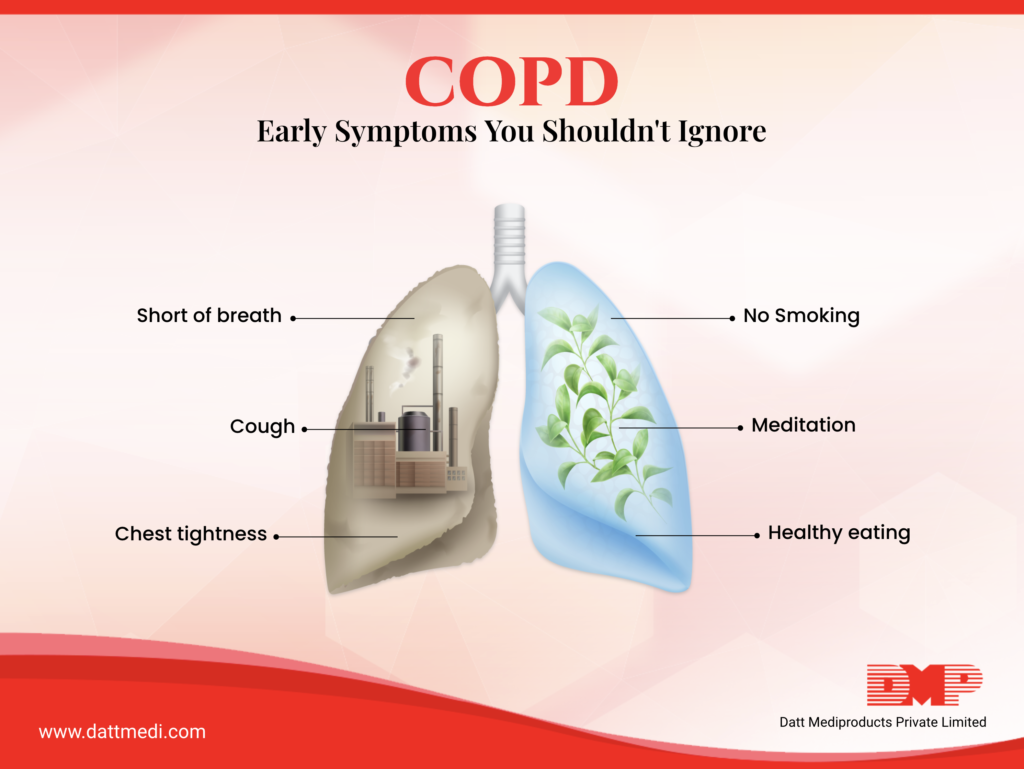

The Importance of Acknowledging Lung Health Warning Signs
Our lungs play a vital role in sustaining life, yet their well-being is often taken for granted. Ignoring warning signs related to lung health can lead to severe consequences. This article explores the significance of recognizing and addressing warning signals to ensure optimal lung health.
Persistent Cough: A Signal Not to Be Overlooked
A persistent cough is one of the primary warning signs that something might be amiss with your lungs. Ignoring this symptom, especially if it lingers for weeks or worsens over time, can contribute to the progression of respiratory issues. Recognizing the significance of a persistent cough is crucial for early intervention.
Shortness of Breath: A Red Flag for Respiratory Distress
Shortness of breath, even with mild exertion, is another warning sign that should not be dismissed. Ignoring this red flag may lead to increased difficulty in performing daily activities and could indicate an underlying respiratory condition. Understanding the potential severity of shortness of breath prompts the need for professional evaluation.
Wheezing and Noisy Breathing: Indicators of Airflow Obstruction
Wheezing and noisy breathing are often indicators of airflow obstruction in the lungs. Ignoring these sounds may signify conditions such as asthma or chronic obstructive pulmonary disease (COPD). Addressing these audible warnings with medical attention is essential for proper diagnosis and management.
Chest Pain: Not Always Cardiac, Sometimes Pulmonary
Chest pain is commonly associated with heart issues, but it can also be a warning sign of pulmonary concerns. Ignoring chest pain that is recurrent or associated with breathing may lead to overlooking respiratory conditions. Understanding the multifaceted nature of chest pain ensures a comprehensive approach to health.
Fatigue and Weakness: Systemic Impact of Respiratory Issues
Fatigue and weakness, when coupled with respiratory symptoms, can indicate systemic impact. Ignoring these signs may contribute to a decline in overall well-being. Recognizing the connection between respiratory health and energy levels underscores the importance of addressing fatigue in the context of lung function.
Unexplained Weight Loss: Potential Indicator of Health Concerns
Unexplained weight loss, especially when accompanied by respiratory symptoms, can be a potential indicator of health concerns. Ignoring weight loss without a clear cause may delay the diagnosis of underlying lung issues. Seeking medical advice is crucial to uncover and address any potential respiratory conditions.
Cyanosis: Blue Tint as a Warning Signal
Cyanosis, a bluish tint to the skin or lips, is a critical warning signal of inadequate oxygen levels. Ignoring cyanosis is a serious oversight, as it indicates potential respiratory failure. Recognizing this visible sign prompts immediate medical attention to identify and address the underlying cause.
Recurring Respiratory Infections: Chronic Vulnerability
Frequent respiratory infections, such as pneumonia or bronchitis, can be indicative of chronic vulnerability in the respiratory system. Ignoring the recurrence of infections may lead to the progression of underlying lung conditions. Recognizing this pattern prompts a proactive approach to lung health.
Smoking and Environmental Exposures: Acknowledging Risk Factors
Ignoring the impact of smoking and environmental exposures on lung health is a common pitfall. Smoking and exposure to pollutants significantly increase the risk of respiratory issues. Acknowledging these risk factors prompts lifestyle modifications and emphasizes the importance of a lung-friendly environment.
Conclusion: Prioritizing Respiratory Well-being
In conclusion, neglecting lung health warning signs can have serious implications for overall well-being. From persistent coughs to visible signs like cyanosis, each signal plays a crucial role in early detection and intervention. By prioritizing respiratory well-being, individuals can take proactive steps to ensure healthy and optimal lung function.
Learn more about Ignoring lung health warning at acnerimedi.net.



